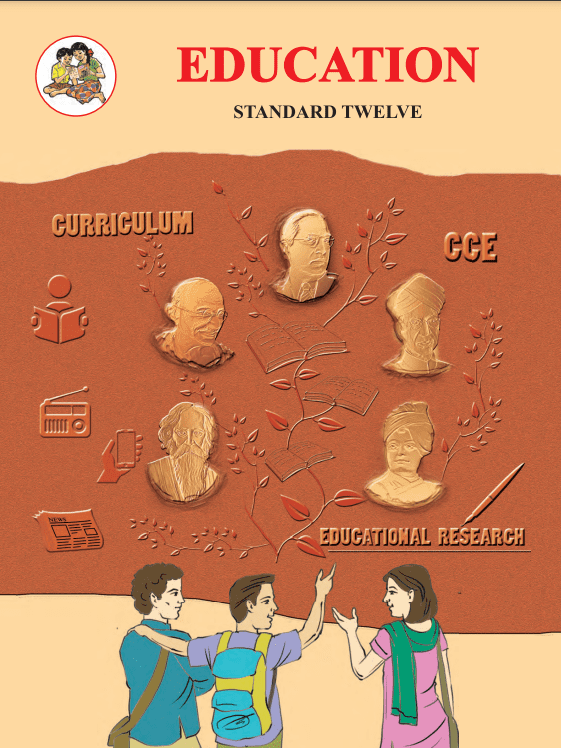Education Standard Twelve XII
Education Standard Twelve Arts
CHAPTERS :
- Indian Educational Thinkers
- Education in Post-Independence India
- Socialization
- Learning Process
- Educational Management and Administration
- Curriculum and Educational Evaluation
- Educational Research Methods
- New Trends in Education
1. Indian Educational Thinkers
* To be able to tell educational thoughts of Rabindranath Tagore.
* To be able to tell educational contribution of Rabindranath Tagore.
* To be able to tell educational thoughts of Swami Vivekananda.
* To be able to tell educational contribution of Swami Vivekananda.
* To be able to tell educational thoughts of Mahatma Gandhi.
* To be able to tell educational contribution of Mahatma Gandhi.
* To be able to tell educational thoughts of Dr. Sarvapalli Radhakrishnan.
* To be able to tell educational contribution of Dr. Sarvapalli Radhakrishnan.
* To be able to tell educational thoughts of Dr. Babasaheb Ambedkar.
* To be able to tell educational contribution of Dr. Babasaheb Ambedkar.
2. Education in post-independence India
* To be able to tell the background of University Education Commission.
* To be able to explain the main objectives of University Education Commission.
* To be able to tell the main recommendations of University Education Commission.
* To be able to tell the background of Secondary Education Commission.
* To be able to explain the main objectives of Secondary Education Commission.
* To be able to tell the main recommendations of Secondary Education Commission.
* To be able to tell the background of Indian Education Commission.
* To be able to explain the main objectives of Indian Education Commission.
* To be able to tell the main recommendations of Indian Education Commission.
* To be able to tell the background of National Education Policy 1986.
* To be able to explain the main objectives of National Education Policy 1986.
* To be able to explain the salient features of National Education Policy 1986.
* To be able to tell the background of National Curriculum Framework 2005.
* To be able to tell the educational aims stated in National Curriculum Framework 2005.
* To be able to tell the nature of National Curriculum Framework 2005.
* To be able to tell the background of State Education Framework 2010.
* To be able to explain the main principles of State Education Framework 2010.
* To be able to explain the salient features of State Education Framework 2010.
* To be able to tell the background of Right of Children to Free and Compulsory Education Act, 2009.
* To be able to tell the main provisions of Right of Children to Free and Compulsory Education Act, 2009.
3. Socialization
* To be able to tell the concept of socialization.
* To be able to explain the role of teacher in socialization.
* To be able to tell the concept of social transformation.
* To be able to explain the characteristics of social transformation.
* To be able to explain the factors which bring in social transformation.
* To be able to explain the role of teacher in social transformation.
* To be able to tell the concept of mass communication media.
* To be able to explain the types of mass communication media.
* To be able to tell the benefits of mass communication media.
* To be able to tell the limitations of mass communication media
Additional Information
| BOARD | Maharashtra State Board |
|---|---|
| STREAM | Arts |
| PUBLISHER | Vivek Uttam Gosavi Controller |
| YEAR | 2020 |
| ED | First |
| PAGES | 88 |
| SUBJECT | Education Standard Twelve Arts |
| LANGUAGE | English |


Reviews
There are no reviews yet.